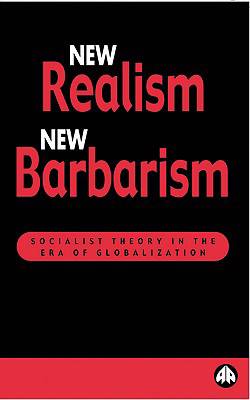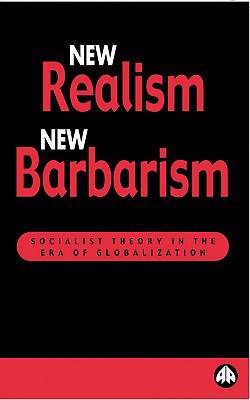
- Afhalen na 1 uur in een winkel met voorraad
- Gratis thuislevering in België vanaf € 30
- Ruim aanbod met 7 miljoen producten
- Afhalen na 1 uur in een winkel met voorraad
- Gratis thuislevering in België vanaf € 30
- Ruim aanbod met 7 miljoen producten
Zoeken
New Realism, New Barbarism: Socialist Theory in the Era of Globalization
Boris Kagarlitsky
€ 175,95
+ 351 punten
Omschrijving
In this radical and controversial overview of the post-communist world, Boris Kagarlitsky argues that the very success of neo-liberal capitalism has made traditional socialism all the more necessary and feasible. Kagarlitsky argues that leftists exaggerate the importance of the 'objective' aspects of the 'new reality' -- globalisation -- and the weakening of the state, while underestimating the importance of the hegemony of neo-liberalism. As long as neo-liberalism retains its ideological hegemony, despite its economic failure, the consequence is a 'new barbarism' -- already a reality in Eastern Europe, and now also emerging in the West.Kagarlitsky challenges the political neurosis of the left and prevailing assumptions of Marxism to argue that Marx's theories are now more timely than they were in the mid-twentieth century. He analyses theories of the 'end of the proletariat' and the 'end of work', and assesses the potential of the new technologies - such as the Internet - which create fresh challenges for capitalism and new arenas for struggle.
Specificaties
Betrokkenen
- Auteur(s):
- Uitgeverij:
Inhoud
- Aantal bladzijden:
- 176
- Taal:
- Engels
- Reeks:
Eigenschappen
- Productcode (EAN):
- 9780745315560
- Verschijningsdatum:
- 20/11/1999
- Uitvoering:
- Hardcover
- Formaat:
- Genaaid
- Afmetingen:
- 135 mm x 215 mm
- Gewicht:
- 453 g

Alleen bij Standaard Boekhandel
+ 351 punten op je klantenkaart van Standaard Boekhandel
Beoordelingen
We publiceren alleen reviews die voldoen aan de voorwaarden voor reviews. Bekijk onze voorwaarden voor reviews.











